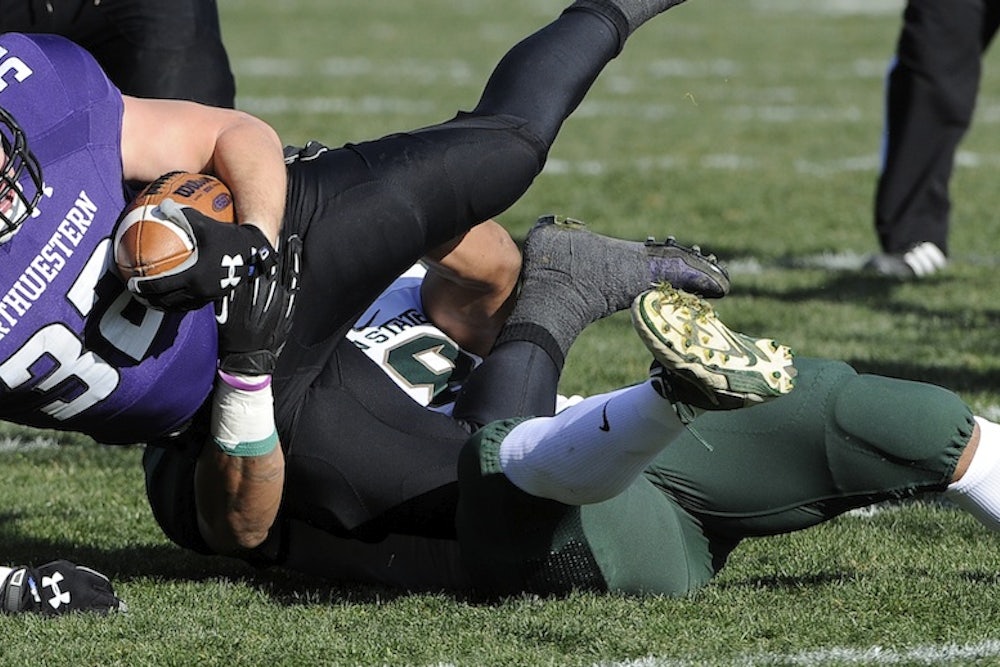In a ruling with potentially huge ramifications, the regional National Labor Relations Board (NLRB) ruled Wednesday that Northwestern University football players are employees of the school under federal law and therefore deserve a vote on unionizing. The ruling’s logic would likely make its findings applicable to most Division I-A college football programs.
Northwestern released a statement saying it disagreed with the ruling. “Northwestern believes strongly that our student-athletes are not employees, but students. Unionization and collective bargaining are not the appropriate methods to address the concerns raised by student-athletes.” That is the National Collegiate Athletic Association (NCAA) party-line. Northwestern confirmed that it will appeal the case to the national NLRB.
The players, with the help of the advocacy group the College Athletes Players Association and backed also by United Steelworkers, had filed for unionization in January. They insisted they were not looking to be paid, but rather for the right to collectively bargain for protection against losing scholarships in the event of injuries, and other basic sorts of treatment and respect. Having said that, there is power in a union, and it does not seem too great a leap to suspect that unionized athletes would eventually seek more than just common-sense job security.
The decision, available here, comes to the conclusion that most supporters of ending NCAA amateurism would have hoped for: “Players receiving scholarships to perform football-related services for the Employer under a contract for hire in return for compensation are subject to the Employer's control and are therefore employees within the meaning of the Act.” Translation: players receive scholarships on the condition of playing football; “football-related services” at a Division I, Football Bowl Subdivision school like Northwestern is as trying or more trying than most actual jobs; when somebody gives you money to do a job, you are an employee; therefore, the Northwestern players are employees.
The ruling itself contains numerous details that really sing. Former quarterback Kain Colter testified that he switched from his pre-med major after “coaches and advisors discouraged him from taking” a prerequisite chemistry class during his sophomore year “because it conflicted with morning football practices.” That does not sound like a system in which student-athletes are treated as “students first, athletes second,” in the NCAA’s deathless phrase (a sentiment echoed, according to the ruling, in Northwestern’s own policy). The ruling also details the players’ heavy schedule—the 6:30 a.m. training room during August preseason, the quasi-voluntary extra drills, the “40 to 50 hours per week” during the season.
If you didn’t know better, you would believe that NLRB regional director Peter Sung Ohr, author of the decision, is incredibly naïve. Who could write, as though it were a newly discovered fact, “The record makes clear that the Employer’s scholarship players are identified and recruited in the first instance because of their football prowess and not because of their academic achievement in high school”? But then you remember that the NCAA’s policies and rhetoric implicitly suggest that this isn’t true—they insist, against all evidence and logic, that top-level football is just a charming side gig for history majors, business majors, and those pre-med majors whose coaches haven’t effectively discouraged them.
